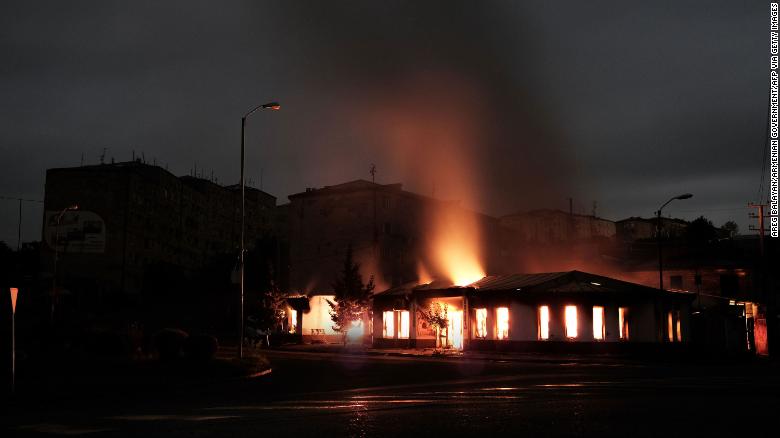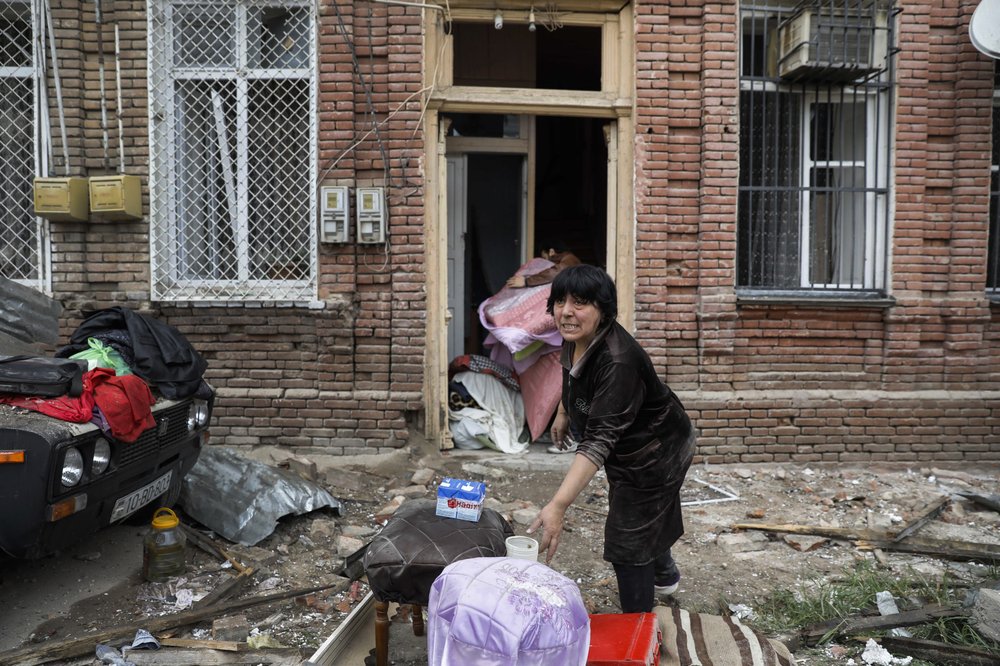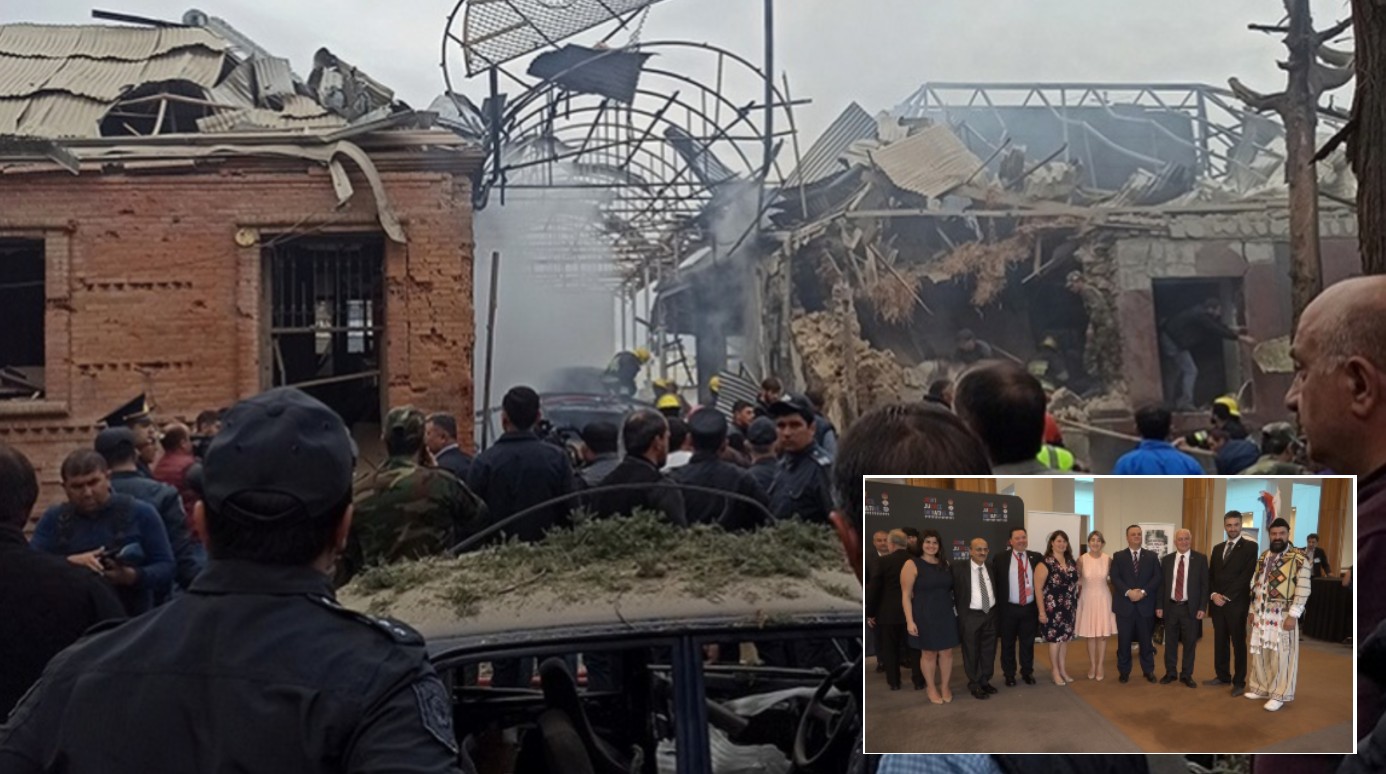The Hellenic Pontian Genocide Commemorative Committee of NSW, consisting of three Pontian Association Clubs in NSW, have released a joint-statement declaring their intention to stand by Artsakh and Armenia as they struggle against the aggression of Azerbaijan.
The Committee, which is made up of Pontoxeniteas NSW, Panageia Soumela Sydney and Diogenes Wollongong, send prayers to the Armenian Hellene villagers of Mehmana (Martakert district) in northern Artsakh, which is close to the frontline of the ongoing battle.
READ MORE: Pontian Associations condemn Azerbaijan cease-fire violations as death toll rises to 95
It’s been declared the biggest flare-up in violence between the two former Soviet republics since 2016, with both sides blaming each other for reigniting a three-decade-old territorial dispute over the separatist region.
Armenia accused Azerbaijan of launching an air and artillery attack on the breakaway region of Nagorno-Karabakh.

In response, Armenia declared martial law and mobilised its male population. Troops shot down two military helicopters and destroyed three tanks, its defence ministry said.
The Federation of Pontian Associations of Australia last week said the strong support from “Turkey’s dictator and human rights violator Erdogan” has allowed Azerbaijani forces to carry out attacks on innocent civilians for days.
The Hellenic Pontian Genocide Commemorative Committee of NSW have called upon the Australian Government to declare its condemnation of the Azeri-Turkish invasion and to publicly demand a ceasefire and peaceful negotiations.

“The escalation of violence conjures memories of the early stages of the genocide committed against the indigenous Armenian, Assyrian and Hellenic peoples of Anatolia by the Ottoman Empire,” the joint statement says.
“As decedents of genocide survivors of the Pontos region of Anatolia (Asia Minor) we cannot allow history to repeat itself after 100 years.”
Im 1994, there were more than three hundred casualties after four days of fighting, with the two sides announcing they had agreed on a new cease-fire. Over a week since the first shells were launched across the border, it is unknown when the two countries will reorganise a new ceasefire protocol.

Russia has promised to defend Armenia, Turkey has pledged to support Azerbaijan, and Iran has a large Azeri minority, which could escalate a crisis and further complicate efforts to secure peace in the region.
Read the full letter below:
The Hellenic Pontian Genocide Commemorative Committee of NSW, Pontoxeniteas NSW, Panageia Soumela Sydney and Diogenes Wollongong stand united with and to support Artsakh’s and Armenia’s struggles against the aggression of Azerbaijan. Our prayers are especially with the Armenian Hellene villagers of Mehmana (Martakert district) in northern Artsakh, close to the frontline.
The escalation of violence conjures memories of the early stages of the genocide committed against the indigenous Armenian, Assyrian and Hellenic peoples of Anatolia by the Ottoman Empire.
As decedents of genocide survivors of the Pontos region of Anatolia (Asia Minor) we cannot allow history to repeat itself after 100 years.
We pray and hope that the fighting ends and peace restored soon.
The Hellenic Pontian Genocide Commemorative Committee NSW condemns the aggressive
and expansionist agenda of Azerbaijan and Turkey against the indigenous Armenian people of Artsakh and the villagers of Mehmana.
The Committee and its member-associations calls upon the Australian Government to declare
its condemnation of the Azeri-Turkish invasion and to publically demand a ceasefire and peaceful negotiations.
Regards,
Mrs Maria Anthony
President Pontoxeniteas NSW
Mr Peter Papoulidis
President Panagia Soumela Sydney
Nr Nikolaos Chrissostomidis
President Diogenes Wollongong
